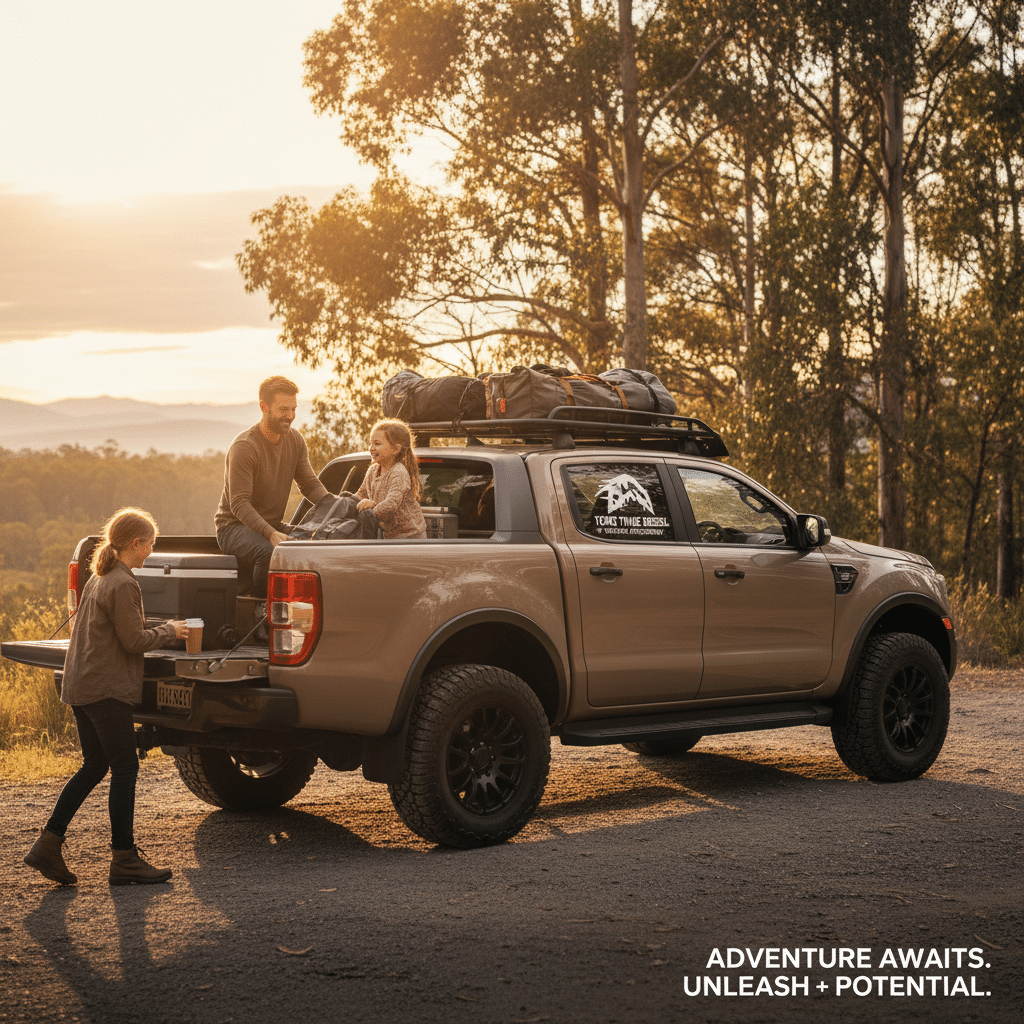For those who rely on diesel engines, whether it’s for work utes, towing caravans, or simply prefer the robust performance, the rising cost of fuel is a real concern. But what if there was a way to not only maintain that performance but also improve your fuel economy? Enter diesel tuning, a process that optimises your engine’s computer settings for enhanced efficiency and power.
It might sound too good to be true, but with the right approach, diesel performance tuning can deliver tangible benefits, helping you save money at the pump and get more out of your vehicle. Let’s explore seven ways this is achieved.
Understanding diesel tuning
Diesel tuning, at its core, is about remapping your engine’s Electronic Control Unit (ECU). This unit controls various aspects of your engine’s operation, including fuel injection, turbo boost, and timing. By adjusting these parameters, a skilled tuner can optimise the engine for better performance, fuel efficiency, or a combination of both. It’s like giving your engine a software upgrade, tailored to your specific needs and driving style.
How does it actually work?
Think of your engine’s ECU as a conductor of an orchestra. It tells each part of the engine when and how to perform. Standard factory settings are often a compromise, designed to suit a wide range of driving conditions and driver habits. Tuning allows you to fine-tune these settings, optimising them for your specific circumstances. This means getting the most efficient burn from your fuel.
7 ways diesel tuning improves fuel efficiency
Here are seven specific ways in which diesel tuning can lead to improved fuel efficiency and cost savings:
1. Optimised fuel injection
The amount of fuel injected into the engine cylinders and the timing of that injection are critical for efficient combustion. Tuning allows for precise adjustments to these parameters, ensuring that the fuel burns completely and efficiently. This can lead to significant fuel savings, especially during highway driving.
2. Enhanced turbocharger control
Many modern diesel engines utilise turbochargers to boost power and efficiency. Tuning can optimise the turbocharger’s operation, ensuring it delivers the right amount of boost at the right time. This improves throttle response and reduces the need to “push” the engine hard, ultimately saving fuel.
3. Improved air-fuel ratio
Maintaining the correct air-fuel ratio is crucial for efficient combustion. Tuning can fine-tune this ratio, ensuring that the engine receives the optimal mix of air and fuel for maximum efficiency. This is particularly important under varying load conditions, such as when towing or driving uphill.
4. Reduced engine stress
A well-tuned engine operates more smoothly and efficiently, reducing stress on its components. This can lead to improved reliability and longevity, as well as better fuel economy. Think of it as easing the workload on your engine, allowing it to perform optimally without straining.
5. Better throttle response
With improved throttle response, you won’t need to press the accelerator as hard to achieve the desired level of performance. This can translate directly into fuel savings, especially in stop-start traffic. A more responsive engine makes driving easier and more economical.
6. Customised tuning for specific needs
A good tuner will take the time to understand your specific driving needs and tailor the tuning accordingly. Whether you’re primarily concerned with fuel efficiency, towing performance, or a combination of both, the tuning can be optimised to meet your requirements. This personalised approach ensures you get the most benefit from the process.
7. Real-time adjustments
Some advanced tuning systems allow for real-time adjustments to engine parameters based on driving conditions. This means that the engine can automatically optimise itself for maximum fuel efficiency or performance, depending on the situation. This level of adaptability can lead to significant fuel savings over time.
Is diesel tuning right for you?
Before diving into diesel tuning, it’s essential to consider your individual needs and circumstances. Are you primarily concerned with saving money on fuel, or are you looking to boost your vehicle’s performance for towing or off-roading? Understanding your goals will help you choose the right tuning solution and ensure that you get the results you’re looking for.
Choosing a reputable tuner
The key to successful diesel tuning lies in choosing a reputable and experienced tuner. Look for a tuner with a proven track record, positive customer reviews, and a thorough understanding of diesel engine technology. A qualified tuner will be able to assess your vehicle’s condition, discuss your needs, and recommend the best tuning solution for your specific situation. Don’t be afraid to ask questions and seek clarification on any aspect of the tuning process.
Potential considerations
While diesel tuning offers numerous benefits, it’s important to be aware of potential considerations. Modifying your engine’s ECU may affect your vehicle’s warranty, so it’s essential to check with your manufacturer or dealer before proceeding. Additionally, it’s crucial to ensure that the tuning is performed by a qualified professional to avoid any potential damage to your engine. A poorly executed tune can lead to reduced reliability and even engine failure.
Frequently asked questions
Here are some common questions about diesel tuning:
1. Will diesel tuning void my warranty?
Potentially, yes. Modifying your ECU can void parts of your manufacturer’s warranty. Check with your dealer before tuning.
2. How much fuel can I save with diesel tuning?
Savings vary depending on driving style, vehicle type, and tuning specifics, but improvements of 5-15% are common.
3. Is diesel tuning safe for my engine?
When performed by a qualified tuner using appropriate equipment, it is generally safe. A poor tune can cause damage.
4. How long does diesel tuning take?
The process typically takes a few hours, depending on the complexity of the tuning and the vehicle.
5. What is the cost of diesel tuning?
Costs vary depending on the tuner and the type of tuning required. Get quotes from several reputable tuners before making a decision.

